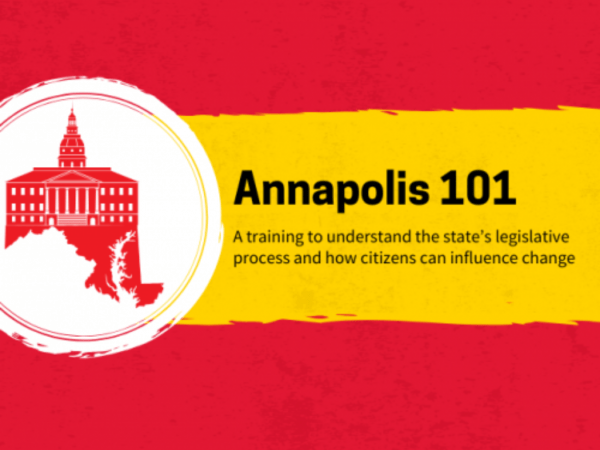New Tools Help Marylanders Navigate the State Legislature
For Marylanders eager to understand the legislative process but unsure where to start, a new toolkit from the University of Maryland’s Center for Democracy and Civic Engagement (CDCE) offers a clear path forward.
Annapolis 101, a newly developed suite of educational tools, aims to simplify how the Maryland General Assembly works. It aims to empower students, educators, and advocates with knowledge about the state’s legislative processes—essentially, how laws are proposed and moved through the Maryland General Assembly—as well as information on effective lobbying and advocacy strategies.
Annapolis 101 serves as a one-stop resource that is available in many forms, including a pocket guide, a slideshow presentation, a facilitator guide, a "Deeper Dive" PDF, and a workbook.
“We developed Annapolis 101 after hearing from many of our community partners that they needed tools and support to explain the legislative process in the General Assembly," said Sam Novey, Chief Strategist of CDCE. "At CDCE, part of our mission is to facilitate understanding of state government. We saw a gap in the resources available about the legislative process in Maryland, where well-designed, easy-to-use, highly visual resources could advance this mission.”
Annapolis 101 was developed through an iterative Human-Centered Design process. Various partners—including the Maryland Fellows program, the UMD Student Government Association, the Maryland Student Legislature, and Helping Oppressed People Excel (H.O.P.E.)—piloted the curriculum and provided valuable feedback that helped refine the final product.
A key question was posed during this process: How might we educate all Marylanders on the state's legislative process? The top response was incorporating these structured learning tools into high school curricula and college courses.
“At the core of this initiative is making civic education more accessible,” said Michael Hanmer, Department of Government and Politics Professor and Director of the CDCE. “Annapolis 101 makes it easier for people to teach students or train advocates about how to engage effectively with the General Assembly.”
CDCE plans to expand Annapolis 101's reach by collaborating with high schools, universities, and community organizations interested in incorporating the curriculum into their programming. In the coming months, the initiative will evolve to address the unique needs of various communities and advocacy groups.
CDCE encourages educators, students, and advocates to fill out a request form to access the Annapolis 101 toolkit or explore partnership opportunities.
Published on Fri, 03/14/2025 - 14:15


